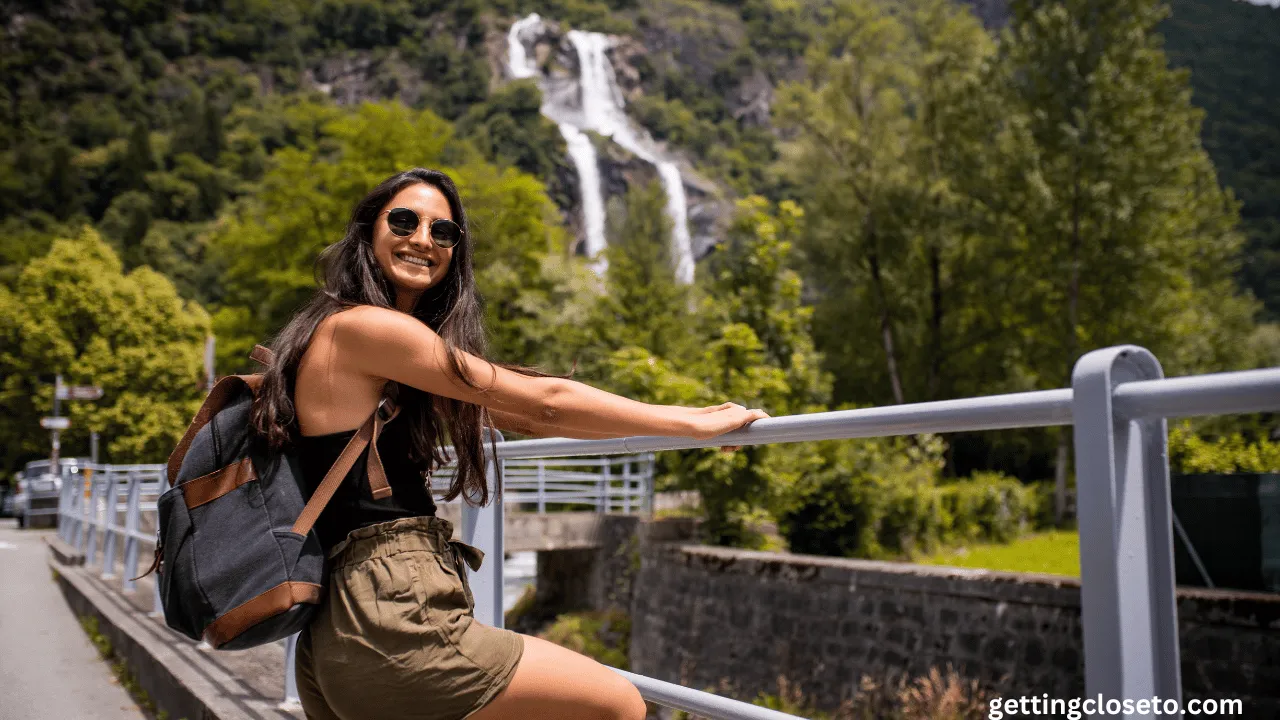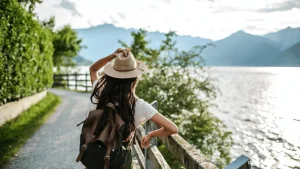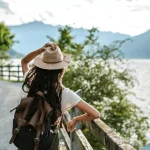Embarking on a solo travel adventure can be an exhilarating and transformative experience, offering unparalleled opportunities for self-discovery and exploration. However, it can also be daunting and overwhelming for first-time solo travelers.
Fear not! Your solo journey can be safe and fulfilling with careful planning and preparation.
In this comprehensive guide, we’ll cover ten essential tips to help first-time solo travelers navigate their adventure with confidence and ease.
Contents
- 1 1. Research Your Destination Thoroughly:
- 2 2. Plan Your Itinerary Wisely:
- 3 3. Stay Connected and Informed:
- 4 4. Pack Light and Smart:
- 5 5. Trust Your Instincts:
- 6 6. Blend In with the Locals:
- 7 7. Stay Aware of Your Surroundings:
- 8 8. Connect with Other Travelers:
- 9 9. Be Flexible and Open-Minded:
- 10 10. Practice Self-Care and Mindfulness:
- 11 Conclusion:
- 12 FAQs
- 12.1 1. Is solo travel safe?
- 12.2 2. How can I meet other travelers while traveling alone?
- 12.3 3. What should I do if I feel lonely or homesick during solo travel?
- 12.4 4. How do I stay safe as a solo female traveler?
- 12.5 5. What should I do if I encounter language barriers while traveling alone?
- 12.6 6. How do I handle emergencies while traveling solo?
1. Research Your Destination Thoroughly:
Before setting out on your solo journey, take the time to research your destination thoroughly. Familiarize yourself with the local customs, culture, and language. Understand the political situation and any safety concerns that may exist.
Understanding your destination will help you feel more prepared and confident.
2. Plan Your Itinerary Wisely:
While spontaneity can add excitement to your solo adventure, having a rough itinerary in place is essential.
Plan your transportation, accommodation, and activities, especially for the first few days of your trip. This will help alleviate stress and ensure you have a smooth start to your journey.
3. Stay Connected and Informed:
Maintain regular communication with friends and family back home, especially during the initial stages of your solo travel. Share your itinerary with trusted contacts and check in with them periodically.
Stay informed about current events and any potential safety hazards in your destination. Having a support network and staying informed will provide peace of mind throughout your journey.
4. Pack Light and Smart:
Packing light is essential for solo travelers, allowing greater mobility and flexibility. Pack versatile clothing items that can be mixed and matched, and opt for lightweight and compact travel gear.
Remember to include essential items such as a first aid kit, travel documents, and emergency contact information. Additionally, consider investing in a reliable travel insurance policy for peace of mind.
5. Trust Your Instincts:
One of the most valuable skills for solo travelers is learning to trust their instincts. If a situation feels uncomfortable or unsafe, trust your gut and leave it.
Be cautious when interacting with strangers, and avoid sharing too much personal information. Remember, it’s always better to err on the side of caution when traveling alone.
6. Blend In with the Locals:
Embracing the local culture and customs can help solo travelers feel more integrated and accepted in their destination. Learn a few basic phrases in the local language, respect local customs and dress codes, and be mindful of your behavior in public spaces.
By blending in with the locals, you’ll enhance your travel experience and minimize the risk of standing out as a target for scams or unwanted attention.
7. Stay Aware of Your Surroundings:
Maintaining situational awareness is crucial for solo travelers, especially in unfamiliar environments.
Attention your surroundings, avoid isolated or poorly lit areas, and be mindful of pickpockets and scam artists. Trust your instincts and be proactive in safeguarding your belongings and personal safety.
8. Connect with Other Travelers:
Solo travel doesn’t mean you have to be alone the entire time. Take advantage of opportunities to connect with other travelers along the way.
Stay in hostels or join group tours and activities where you can meet like-minded individuals. Sharing experiences and making new friends can enhance your travel experience and provide a sense of camaraderie on the road.
9. Be Flexible and Open-Minded:
Solo travel is all about embracing uncertainty and embracing the unexpected. Be flexible with your plans and open-minded to new experiences and potential opportunities.
Embrace the freedom solo travel affords you and allow yourself to go with the flow. Some of the most memorable moments often occur when you least expect them.
10. Practice Self-Care and Mindfulness:
Finally, remember to prioritize self-care and mindfulness throughout your solo journey. Take time to rest and recharge, listen to your body, and prioritize your physical and emotional well-being.
Practice mindfulness and gratitude, and savor the moments of solitude and self-discovery that solo travel brings.
Conclusion:
Embarking on your first solo travel adventure can be a thrilling and transformative experience. Follow these ten essential tips to navigate your journey with confidence and ease.
Remember to stay informed, trust your instincts, and embrace solo travel’s freedom and opportunities. Bon voyage!
FAQs
1. Is solo travel safe?
Solo travel can be safe with proper planning and precautions. Research your destination, stay informed about local safety concerns, trust your instincts, and maintain regular communication with friends and family back home.
2. How can I meet other travelers while traveling alone?
There are several ways to meet other travelers while traveling solo. Stay in hostels, join group tours or activities, attend social events, or use social media and travel apps to connect with like-minded individuals.
3. What should I do if I feel lonely or homesick during solo travel?
Feeling lonely or homesick is normal during solo travel. Stay connected with loved ones back home, reach out to other travelers for companionship, engage in activities you enjoy, and take time for self-care and reflection.
4. How do I stay safe as a solo female traveler?
Female solo travelers can take additional precautions such as avoiding walking alone at night, dressing modestly, staying in well-lit and reputable accommodations, and trusting their instincts in unfamiliar situations.
5. What should I do if I encounter language barriers while traveling alone?
Learning a few basic phrases in the local language can help overcome language barriers. Additionally, carry a translation app or phrasebook, use gestures and visual aids to communicate, and seek assistance from locals or fellow travelers when needed.
6. How do I handle emergencies while traveling solo?
Be prepared for emergencies by carrying essential items such as a first aid kit, travel insurance, and emergency contact information. Know how to access local emergency services and plan to contact the embassy or consulate if necessary.








